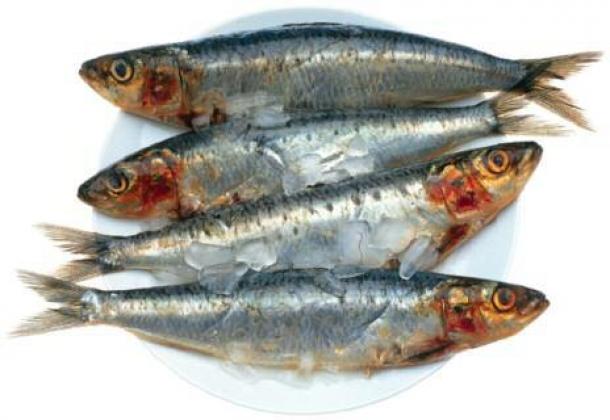
What's new
Walks by the sea
Fred Olsen's Cruise lines for 2025
Christmas books reviews
DVD reviews
Doctor Who
Our new website - Enjoy Britain online www.enjoybritainonline.co.uk/
New CD releases
Discover Knightsbridge, London
Birdwatching and more


ONCE WE progress past the age of 50, should we be choosing our food with more care? For a number of reasons, the answer is a definite ‘yes.’
For one thing, as we age our metabolisms slow down. That means we burn up fewer calories, so eating the same amount of food as we always did means we start to put on weight. Becoming overweight is a risk factor for a number of illnesses, including diabetes, heart disease and dementia, and it will also put more pressure on the joints.
Some foods may also be useful in helping prevent and alleviate the kind of ailments that can can creep up on us in later life. Hard evidence that a particular food will prevent a specific illness is still lacking, but existing research, anecdotal reports and traditional usage supports the idea that – for better or worse – we are at least partly what we eat.
The Arthritic Association, for example, states “research has shown that a good diet can help people manage their arthritis – and that a poor diet can make it worse.”
Portion control, along with a healthy, balanced diet, is the key to food health after 50, according to Sioned Quirke of the British Dietetic Association, but adjusting portions doesn’t mean anything too drastic. “It’sjust being aware of portion size, especially starchy carbohydrates because they canbe sohigh in calories,” says Sioned. “So it may mean taking into account your activity level compared with your portion sizes; and there are things that can help – having a larger portion of fruit or vegetables and forgoing an extra potato.”
While food portion size usually remains the same as we get older, exercise often tails off, but regular exercise slashes the risk of heart disease, cancer, stroke, arthritis and Alzheimer’s. The strategy here, Sioned suggests, is to adjust the type of exercise. “It might not be the same form of exercise as previously, but you still need to do some to build muscle mass.It’s not just how many calories you burn during the exercise, it’s that you’re maintaining muscle mass. And muscle actually requires calories to stay there, unlike fat, which doesn’t use any calories at all. So by doing regular activity, you’re naturally burning off more calories, even when you're asleep"
Arthritis
Alzheimer's
Avoid: saturated fats and trans fats, which double the risk of Alzheimer’s; go easy on sugar and salt; and favour baking or grilling food instead of frying.
Jess Smith of the Alzheimer’s Society said: “There is a growing body of evidence to suggest that a Mediterranean diet and regular exercise can significantly cut down our risk of developing dementia.”
Heart disease
To See the Full Article From Choice Magazine Click Here
Have any of these foods helped you? Want more health tips?
To keep up to date with all the latest from Choice, or if you have something you want to share with our team, follow us on Facebook, Twitter, Google+, Instagram and YouTube
National Smile Month
Eye health
Yoga for April 2023
Cheers! Drink plenty of water this Spring
Yoga March 2023
Fit for the Future - keeping healthy as we age
Yoga February 2023
My Camino of the Heart
Seniors can learn piano without pain
Hear today...
Stay safe in the sun
Relaxation Tape and Daily Yoga Video
Do you need a private GP
Can private health insurance buy peace of mind?
Prepare for care
Can a carer ever become part of the family?
The mind body connection
Public underestimating summer heat risks
Make your home dementia-friendly
Tango and Yoga... on prescription
Over-65s face ‘hidden’ scourge of malnutrition
Finding Fibre
Hip op hope for cancer patients
Health News: May
Spreading the Massage Messsage
Tackling extremes of pain
Stay active to stop 'senior moments'
B12: The overlooked vitamin
When silence is not golden
How Stressed are you?
Hi-tech revolution for retirement
Maximum energy, minimum effort
Vitamins: Gummies fill the gap
How to keep your prostate healthy
Facing up to phobias
When you've got to go...
Tracking the hidden cancer
Men, women and drugs
The secret killer in your home?
Keeping dementia at bay
Flexible, Friendly, Fitness with FLexercise
Colour me happy
Keeping fit indoors
Living with tinnitus
Put eye health in the driving seat
Opening up hospice care
How will our care homes look in the future?
Easing Migraine Misery
Sweet dreams are made of this
The Hidden Signs of Alcoholism
It's all in the timing
Just Do It
The Age of Anxiety
Online health: Click or Curse?
Nuts reduce risk of killer diseases
It’s never too late for sport
Reduce Your Risk of Cancer
Tooth Discolouration Why It Happens and What You Can Do About It
Easing Leg Cramp Agony
The 10 best health apps
Ear Implant can Change Lives
Easing Pain for IBS sufferers
Staying Moblie
Look after your legs
Eating for a healthy heart
Here's to better hearing
How to avoid diabetes

Walks by the sea
Fred Olsen's Cruise lines for 2025
Christmas books reviews
DVD reviews
Doctor Who
Our new website - Enjoy Britain online www.enjoybritainonline.co.uk/
New CD releases
Discover Knightsbridge, London
Birdwatching and more